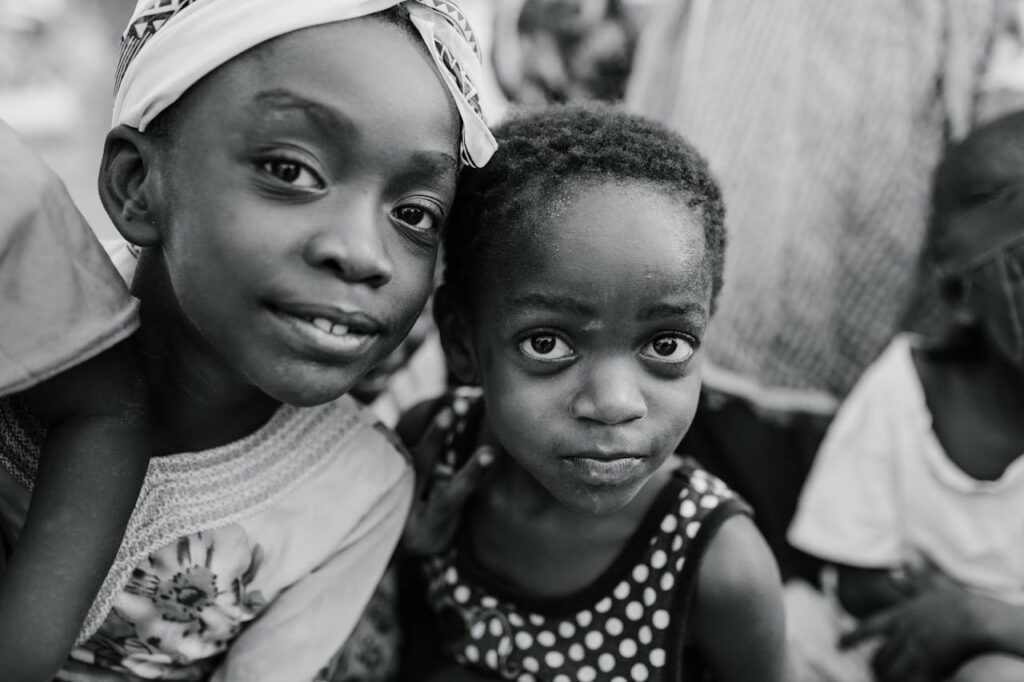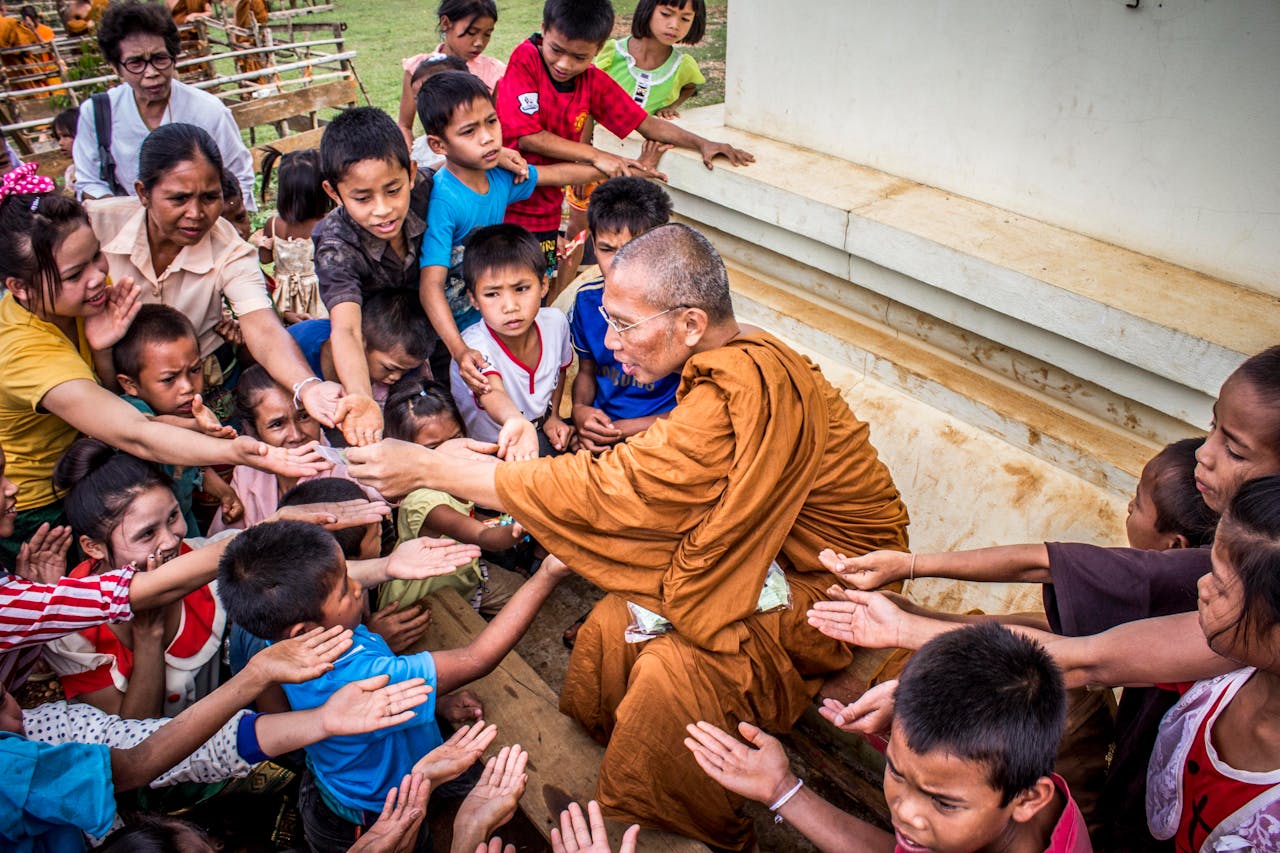We live in a world where society is expected to nurture, guide, and protect its members. But what happens when society does the opposite? Instead of mentoring, we judge; Instead of guiding, we criticize; Instead of protecting, we isolate. This harsh judgment is not only failing to shape our ethical compass, but it’s also derailing it entirely. We see people, especially the vulnerable, pushed to the fringes, labeled as outsiders, and left to fend for themselves in a world that’s supposed to embrace them.
Imagine a child who has lost both parents; an orphan. Traditionally, the community would rally around this child, offering love, support, and a sense of belonging. The child, though orphaned, would grow up feeling part of something bigger, with a moral framework shaped by the care of those around them. But what if that same community turns its back? The child, left uncared for, begins to act out as a means of survival. Instead of receiving understanding and guidance, they face criticism and resentment. They feel like a burden, unwanted and unloved. The result? A moral compass that spins wildly, with no true north to guide it.
The Role of Society in Shaping Morality
Society has always been the bedrock of moral education. From the time we are born, we learn what is right and wrong through the actions and teachings of those around us. Families, schools, and communities play pivotal roles in imparting these values. They provide the framework within which we understand our place in the world and how we should treat others.

However, in today’s fast-paced and often unforgiving world, this role is increasingly being abandoned. Instead of communities that nurture and protect, we are seeing societies that isolate and judge. The consequences are dire, particularly for those who are most vulnerable. Read more
- Judgment Over Compassion: In many societies, there is a growing tendency to judge rather than to understand. When someone makes a mistake or behaves in a way that deviates from societal norms, the immediate response is often criticism rather than compassion. This harsh judgment can lead to feelings of alienation and rejection. Individuals who are judged harshly may begin to see themselves as outsiders, disconnected from the society that should be supporting them.
- Criticism Instead of Guidance: In the past, communities were more likely to offer guidance to those who strayed from the path. Elders would step in to provide wisdom and direction, helping individuals to correct their course. Today, however, criticism often takes the place of guidance. Instead of offering a helping hand, society tends to point fingers, pushing individuals further into isolation and despair.
- Isolation Leads to Identity Crises: When society fails to provide support and guidance, individuals may struggle with identity crises. They no longer feel a sense of belonging and may seek out alternative communities that offer acceptance, even if those communities promote harmful behaviors. This is particularly evident in the rise of online communities that glorify immorality or destructive behavior. Individuals who feel rejected by mainstream society may gravitate towards these groups, seeking the validation and acceptance they cannot find elsewhere.
The Impact on Vulnerable Populations
The failure of society to nurture and protect its members is particularly devastating for vulnerable populations, such as orphans, people experiencing homelessness, and those suffering from mental health issues. These individuals are often left to navigate the complexities of life without the necessary support systems, leading to a host of negative outcomes.
- Orphans and Abandoned Children: As mentioned earlier, when children lose their parents, they rely on the community to fill the void. Historically, society would step in to provide care, love, and moral guidance. But when society fails to do this, these children are left to fend for themselves. They may turn to crime or other destructive behaviors as a means of survival, only to be met with further judgment and condemnation. Instead of being treated as burdens, these children need to be embraced, guided, and shown that they are valued members of society.
- The People Experiencing Homelessness and Marginalized: Homeless individuals often face similar challenges. Rather than receiving the support and assistance they need to rebuild their lives, they are frequently judged and marginalized. Society’s failure to address the root causes of homelessness: such as poverty, mental illness, and addiction; only exacerbates the problem. The lack of empathy and support further alienates these individuals, leading them to feel disconnected from the very society that should be helping them.
- Mental Health and Stigmatization: Mental health issues are another area where society’s harsh judgment can have devastating effects. Individuals struggling with mental illness are often stigmatized and ostracized, rather than being supported and treated with compassion. This stigmatization can prevent individuals from seeking the help they need, leading to worsening conditions and, in some cases, suicide. Society’s failure to provide a supportive environment for those with mental health issues is a clear example of how harsh judgment can derail the moral compass of both individuals and communities.
Finding Solutions: A Call for Compassion and Empathy
To address these issues, society must fundamentally rethink its approach to morality and judgment. Instead of criticizing and isolating, we need to embrace compassion and empathy. Here are a few steps we can take to begin this process:
- Promote Understanding Over Judgment: Society needs to shift its focus from judgment to understanding. When someone makes a mistake or behaves in a way that deviates from the norm, the first response should be to understand the underlying causes. By promoting empathy and compassion, we can help individuals feel supported and valued, rather than isolated and rejected.
- Offer Guidance Instead of Criticism: Instead of criticizing those who are struggling, we should offer guidance and support. This means stepping in to provide advice, mentorship, and resources to help individuals get back on track. By offering a helping hand, we can guide individuals toward positive behaviors and outcomes.
- Rebuild Communities of Support: Society needs to rebuild communities that provide support and a sense of belonging to all members. This is particularly important for vulnerable populations, such as orphans, people experiencing homelessness, and those with mental health issues. By creating communities that are inclusive and supportive, we can help individuals develop a strong moral compass and a sense of purpose.
- Challenge Stigmatization and Promote Acceptance: Stigmatization and marginalization have no place in a compassionate society. We must challenge these attitudes and promote acceptance of all individuals, regardless of their circumstances. This means advocating for policies and practices that support mental health, address homelessness, and provide care for orphans and other vulnerable populations.
Conclusion
Society has a crucial role to play in shaping our ethical compass. However, when judgment, criticism, and isolation take the place of compassion, guidance, and support, society fails in its duty. This failure leads to identity crises, alienation, and a rise in behaviors that further erode our moral fabric.
To reverse this trend, we must embrace a new approach; one that prioritizes empathy, understanding, and community support. By doing so, we can help individuals develop a strong sense of morality, feel a true sense of belonging, and ultimately contribute to a healthier, more compassionate society.
As the saying goes, “It takes a village to raise a child.” But more importantly, it takes a compassionate, understanding, and supportive village to raise a morally grounded individual. Let us strive to be that village, for the sake of our future and the well-being of all its members.





Amazing piece bro very insightful and inspiring as well
very true
nice work keep it up and thanks for the insights and perspective
This is very inspiring. I see you do share powerful pieces of wisdom
Keep doing that excellent work. Keep on keeping on.
“When you stop learning,you start dying” ~ Albert Einstein
Indeed very true. As it is the aim of this space is to inspire not just people but generations to come.